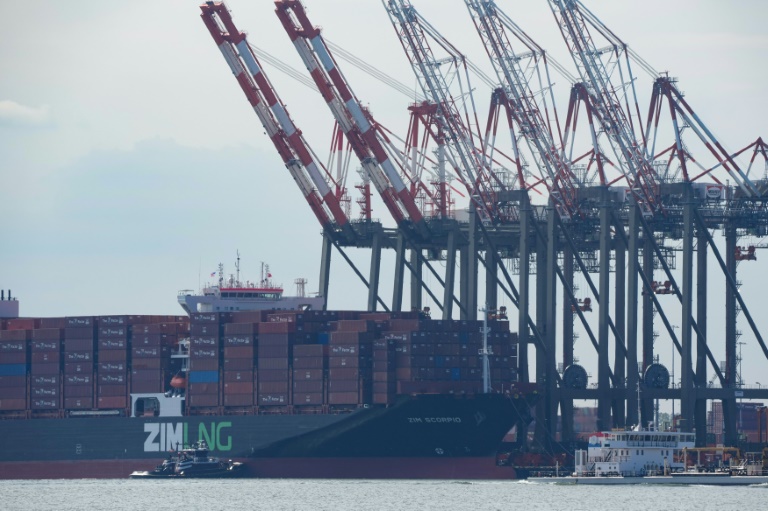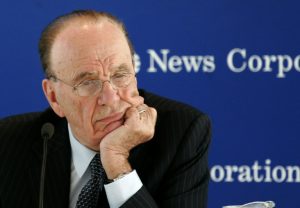新湖畔网 (随信APP) | 美国公司在接近选举之际为更多关税做准备

美国公司正在为总统选举临近而可能实施更多关税做准备 - 版权AFP SETH HERALD
Beiyi SEOW
从推迟投资到考虑搬到国外,美国企业正在为总统竞选进入高潮带来的经济动荡做好准备 —— 随着新关税的实施和更多承诺。
共和党候选人唐纳德·特朗普提议对进口商品征收至少10%的关税,对中国商品征收高达60%的关税,加剧了之前对北京和其他地区施加的关税。
与此同时,民主党候选人卡玛拉·哈里斯服务于一个基本上维持特朗普关税政策的政府,上个月最终对价值180亿美元的中国产品实施了进一步提高的关税。
对于罗伯特·阿克蒂斯来说,他的制造业生意受到关税风暴困扰,过去五年未来一直“蒙上了一层阴影”。
在特朗普执政期间,他面临了钢铁和铝的关税,并且很难找到国内未生产的原材料的替代供应商。
拜登-哈里斯政府对这些材料实施的新措施进一步加剧了他的困境。
“我会很高兴从美国生产商那里购买,”进口用于建筑中使用的灰泥网的导线的阿克蒂斯表示,“但没有人愿意这样做。”
他以前曾被授予关税豁免,但年度申请并不总是成功。
他说,额外成本逐渐转嫁给了房屋建筑商。
—— 数百万成本 ——
美国关税对许多行业造成了影响。美国服装和鞋类协会(AAFA)估计,自2020年以来,零售价格每年上涨了5%至10%。
“最初,我们的会员试图通过侵蚀利润来吸收这些成本,”AAFA政策高级副总裁内特·赫尔曼说。
但这很困难。
赫尔曼告诉AFP说,尚不清楚特朗普关税政策是否让生产重新回到美国,至少有14家美国纺织厂近年来关闭。
他说,像某些丙烯酸毛衣这样的产品也没有在国内生产,需要新的机器和受过训练的工人。
“国内工厂的平均年龄已经进入50岁以上,因为我们根本找不到愿意在那些工厂工作的工人,”赫尔曼补充说。
灯具制造商Streamlight的首席执行官雷·夏日说,“对于像我们这样的小公司来说,这是数百万美元的额外成本。”
他说,“我们付费,我们的出口商帮忙,最终消费者(付费),这就是任何关税的问题所在。”
—— “沉重的影响” ——
随着11月选举的临近,不确定因素笼罩着,但企业更喜欢可预测性。
由里士满和亚特兰大联邦储备银行进行的一项9月调查发现,有30%的公司因选举不确定性而报告推迟、缩减、延迟或取消投资计划。
夏日说,“这会阻止你采取行动。它会阻止你投资,并且它总体上会对所有经济发展产生沉重的影响”。
他一直在与商业合作伙伴努力把一个重要零部件的生产重新带回美国,但尚未成功。
“当我们花时间重新调整供应链时,那就是我们没能花在发展业务上的时间,”他说。
AAFA的赫尔曼补充说,公司一直在努力寻找替代来源,但“效果参半”。
他认为,企业将在预期关税上涨之前加大进口,就像2018年特朗普与北京发起贸易战时那样。
“但再次,如果施加全球关税,那该去哪里?”赫尔曼说。
—— “言之凿凿还是现实?” ——
企业预计无论谁赢得选举,关税都将继续存在。
“如果有的话,它可能会增加,”阿克蒂斯说,他考虑过将他的生意搬到国外。
但他认为很难预测像特朗普这样的候选人可能会做什么,说,“很多都是夸大其词。”
Colonial Metal Products的威尔·托马斯说,除了从多样化来源进口之外,企业几乎无能为力。
“看起来总统候选人们想说激发情绪的话,”他说。
“然而,如果这些产品都没有,而你继续提高产品成本,会发生什么?成本上升了,这就是通货膨胀。”
汽车配件进口商Trim Illusion的总裁科尔比·麦克劳林正在考虑扩大他的业务以提高利润。
作为一名选民,他在作为企业主和公民的角度之间感到矛盾。
他说,“我不反对关税,只要有计划或支持帮助这些公司把生产带回来,”他说。
“对我来说,这是我没有听到的问题。”
英文版:
Companies in the United States are gearing up for the possibility of more tariffs as the presidential election draws close - Copyright AFP SETH HERALD
Beiyi SEOW
From holding back investments to considering moving abroad, businesses in the United States are bracing for more economic turbulence as the presidential campaign kicks into high gear — with fresh tariffs rolled out and promises of more.
Republican candidate Donald Trump has proposed at least a 10 percent tariff on imports and up to 60 percent on Chinese goods, intensifying levies he previously imposed on Beijing and others.
Democratic nominee Kamala Harris, meanwhile, serves an administration that largely maintained Trump’s tariffs and last month finalized further hikes on $18 billion of Chinese products.
For Robert Actis, whose manufacturing business has been caught in the tariff maelstrom, the future has looked “clouded” over the past five years.
Under Trump, he faced tariffs on steel and aluminum and has struggled to find alternative suppliers for raw materials not produced in the country.
Fresh measures on the materials by the Biden-Harris administration have added to his woes.
“I would be very happy to buy from a US producer,” said Actis, who imports wires to make stucco netting used in construction, “but there’s no one willing to do it.”
He has previously been granted tariff exemptions, but the annual applications are not always successful.
Additional costs are gradually being passed to homebuilders, he said.
– Millions in costs –
US tariffs weigh on many industries. The American Apparel & Footwear Association (AAFA) estimates retail prices have risen five percent to 10 percent annually since 2020.
“Initially, our members tried to eat some of those costs by eating into their profits,” said Nate Herman, AAFA’s senior vice president for policy.
But this has been tough.
It is unclear that tariffs on China have returned production to the United States, as Trump argues, and at least 14 US textile mills have closed in recent years, Herman told AFP.
Products like certain acrylic sweaters are not produced domestically either, requiring new machinery and trained workers, he said.
“The average age in domestic factories has gone into the 50s because we just can’t find workers willing to work in those factories,” Herman added.
“For a small company like us, it’s millions of dollars” in added costs, said Ray Sharrah, CEO of lighting products maker Streamlight.
“We pay for it, our exporter helps, and ultimately the consumer (pays),” he said. “This is the problem with any tariff.”
– ‘Dampening effect’ –
Uncertainty looms as November’s election approaches, but businesses prefer predicability.
A September survey involving the Richmond and Atlanta Federal Reserve banks found that 30 percent of firms reported postponing, scaling down, delaying or canceling investment plans due to election uncertainty.
“It stops you from action. It stops you from investment, and it just generally creates a dampening effect on all economic development,” Sharrah said.
With business partners, he has been trying to bring production of a major component back into the country — but to no avail.
“When we spend time reshuffling the supply chain deck, that’s time we don’t spend growing our business,” he said.
AAFA’s Herman added that companies have been trying to find alternative sources but “with mixed results.”
He believes businesses will ramp up imports ahead of expected tariff hikes, as happened in 2018 when Trump engaged in a trade war with Beijing.
“But again, if there’s a global tariff imposed, then where do you go?” Herman said.
– Rhetoric or reality? –
Businesses expect tariffs to stay no matter who wins the election.
“If anything, it’s probably going to go up,” Actis said, adding that he has considered moving his business abroad.
But he believes it is hard to predict what a candidate like Trump might do, saying, “A lot of it is bombast.”
Will Thomas of Colonial Metal Products said there is little businesses can do besides importing from diverse sources.
“It seems that the presidential candidates want to say things that invoke emotion,” he said.
“However, if all these products aren’t there, and you keep increasing the cost of the products, what happens? The costs go up, it’s inflation.”
At auto accessories importer Trim Illusion, President Colby McLaughlin is considering scaling up his business to boost margins.
As a voter, he is torn between perspectives as a business owner and a citizen.
“I’m not against a tariff, as long as there is a plan or support to help these companies bring the manufacturing back,” he said.
“For me, that’s the piece that I haven’t heard.”
US firms brace for more tariffs as election approaches
#firms #brace #tariffs #election #approaches



